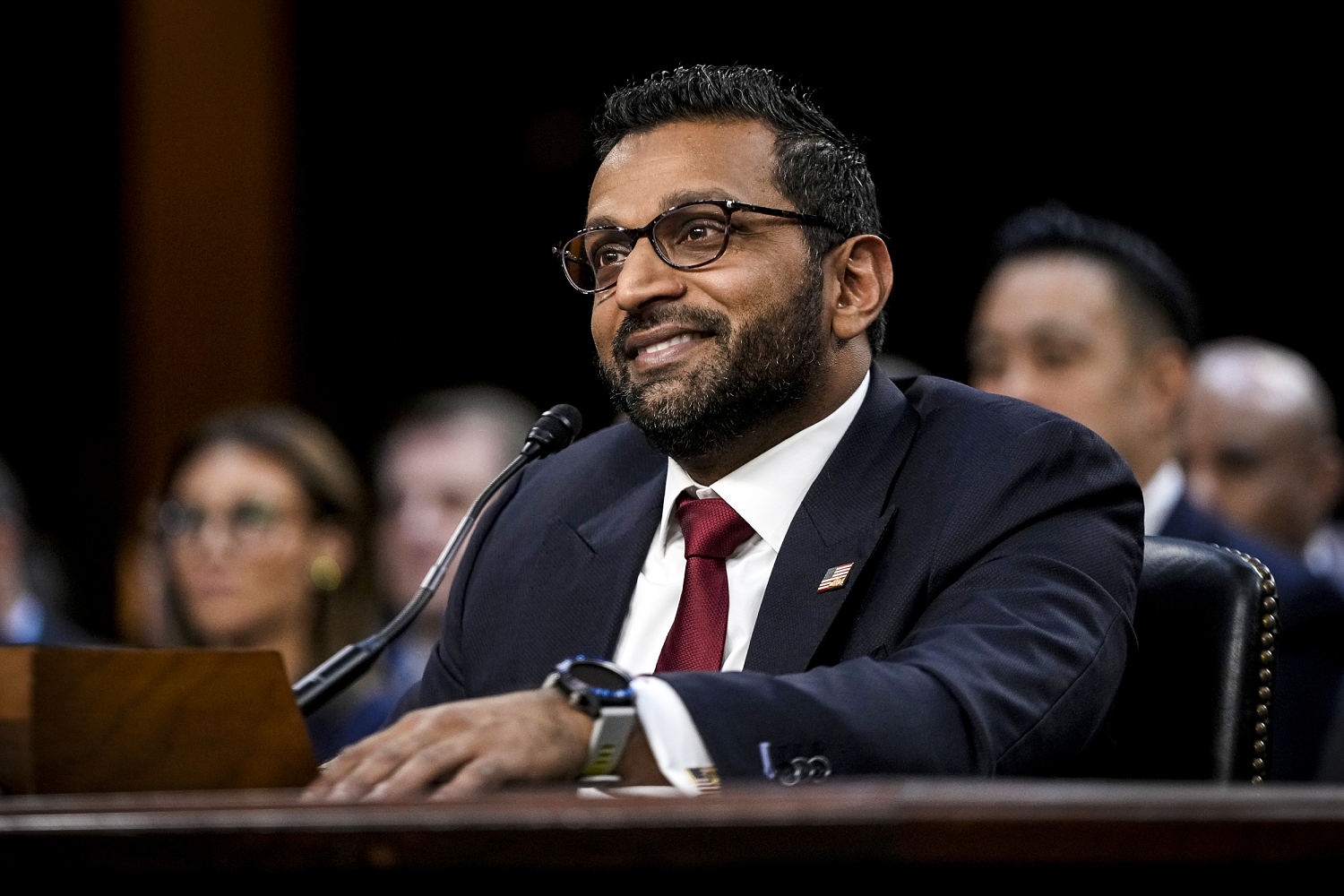
Less than a week after Donald Trump’s second inaugural, NBC News spoke to a Republican senator who said the president shouldn’t expect the GOP-led chamber to simply rubber-stamp all of the most controversial nominees.
“We’ll only give so much,” the senator said. “Because this is the future of the country. It’s not entertainment television.”
At the time, comments such as those offered a degree of hope. Sure, Senate Republicans were going to give the White House the benefit of the doubt as a matter of course, but, we were assured, they would “only give so much.”
In the weeks that followed, the Senate’s GOP majority proceeded to consider and confirm some of the most outlandish nominees in modern history, including Defense Secretary Pete Hegseth, Director of National Intelligence Tulsi Gabbard, Health and Human Services Secretary Robert F. Kennedy Jr. and even FBI Director Kash Patel, who was confirmed with the support of 51 of the chamber’s 53 Republican members.
As my MSNBC colleague Ja’han Jones summarized, “Patel’s confirmation makes a conspiracy theorist and Donald Trump loyalist the federal government’s top crime-fighter. Patel has issued public threats to go after Trump’s perceived political enemies, including publishing a list of members of the so-called deep state he’d investigate if given power. He has also openly promoted the QAnon conspiracy theory and shown support for the violent insurrectionists who stormed the Capitol to overturn the 2020 election on Jan. 6, 2021.”
Indeed, after his confirmation hearing, Patel’s record became even more controversial, not less, making it that much more implausible that senators would confirm a partisan operative with very little experience in federal law enforcement who’d been condemned by some of his former Trump administration colleagues.
And then Republicans confirmed him anyway.
The New York Times published a memorable report a couple of weeks after Election Day, reminding the political world of the kind of “controversies” that derailed the nominations of several high-profile nominees for important governmental posts in recent decades. “A Supreme Court prospect bowed out after it was revealed that he had smoked pot in his youth,” the article noted. “Two candidates for attorney general were done in when it came to light that they had employed undocumented immigrants as nannies. A third cabinet nominee — a former Senate leader no less — was nixed for not paying taxes on a car and driver lent to him by an associate. Even mean tweets were enough to sink one nominee.”
The Times added that controversies that were once considered disqualifying for a presidential nominee now seem “downright benign.”
It was not so long ago that nominees for high-level jobs and even some of the more obscure ones had to be above reproach, to the point where a relatively minor tax issue could derail them. But times are evidently changing when it comes to nominations at the dawn of the second Trump administration.
And that’s ultimately the takeaway that lingers for me from the Patel nomination fight. It’s not that the laws of political gravity have been fully repealed, but they’ve certainly been tweaked.
There was a time in the recent past in which most Americans could safely assume that senators would never seriously consider someone like Patel to lead the FBI — if for no other reason than because they cared too much about federal law enforcement to put it in the hands of someone obviously ill-suited for the job.
Patel’s nomination was itself a joke. His confirmation, however, is a national embarrassment, unbefitting a 21st-century global superpower. Serious countries just don’t do things like this.
All of which brings us back to that NBC News report from the first week of Trump’s second term. “We’ll only give so much,” the senator said. “Because this is the future of the country. It’s not entertainment television.”
Whoever said that at the time might very well have meant it. But now it reads like an epitaph of sorts, marking the end of the traditional rule book for nomination fights and Senate confirmation votes.
The lesson for Trump and the White House couldn’t be more straightforward: There are no limits. The old standards have been shattered. It is a new and farcical era.



